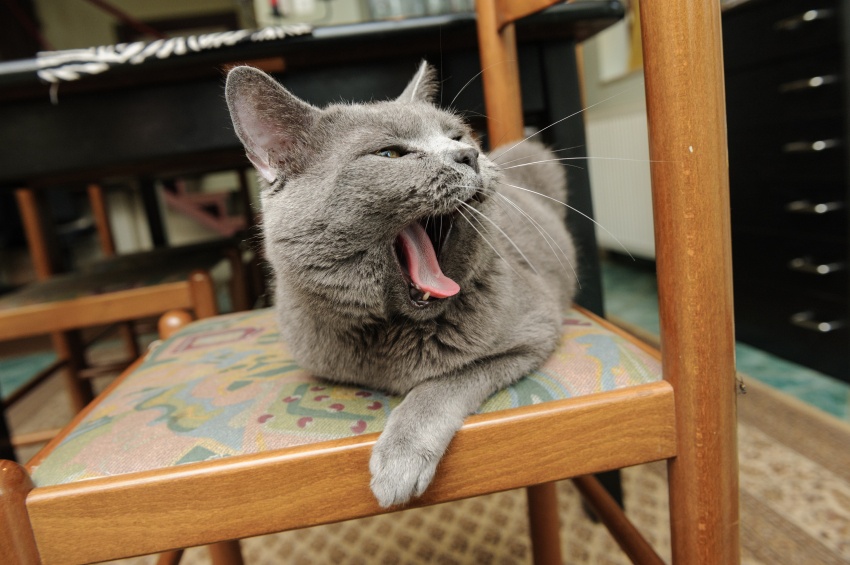Blog
Reflections on Tooth Pain
February 5, 2014

It was about 11:30 at night. As I was settling in for bedtime, I made myself a cup of tea and decided to reward myself after a long day with a cookie (or two). As I took my first bite, a searing pain shot up the right side of my jaw. For the remainder of the night I had a throbbing pain that would not go away. When I made it to the dentist in the morning, he found that I had cracked my tooth. I have always thought that I have a somewhat high tolerance for pain, but I'll tell you, when my tooth was hurting it was all I could think about.
At work the next day, I was examining a cat and as I checked his teeth, I could see that his lower canine tooth had been fractured a while before and he had a few cavities. Was this cat feeling the same pain I had just experienced? As I questioned the owners, no change in appetite had been noticed, but they did think his behavior had been a little different-he wasn't spending as much time with them and was less social than normal with the other cat in the household. Bingo! He was feeling pain and discomfort but because it is instinctual behavior for cats to try hide illness, the way he was showing pain was different from what we see with people. In the wild, if cats look sick, they are often easy targets for predators- this is why we often have to look for very subtle changes in their behavior or habits. I find this to be of utmost important in cases of dental disease in cats. Cats may show a normal or only slightly decreased appetite, may shy away from certain types of food (preferring canned to dry), show reduced grooming habits, or have subtle behavior changes, all while having significant amounts of dental disease.
I often hear back from clients after their cat has had a dental procedure and their most common statement is that " I didn't realize my cat was having dental pain." They often relay stories of how their cat now has a better appetite, increased desire to play and friendlier, more interactive attitudes. Speaking from my own experience as a dental patient and a dental practitioner, I cannot overstate the need for better dental care in cats to help avoid unnecessary pain or discomfort. Along with fractured teeth, cats can get dental abscesses, cavities, and periodontal disease. Our previously published article, Preventing Dental Disease, is a great resource to help you more fully understand dental care in cats. It is up to us to understand, recognize, and hopefully prevent dental issues in our feline friends so they can have the healthiest, happiest life possible.



